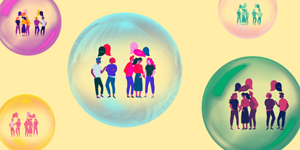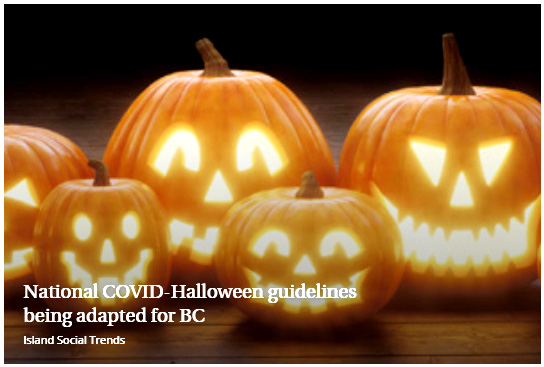Sunday October 4, 2020 |VICTORIA, BC
Analysis by Mary P Brooke, B.Sc. | Island Social Trends
As the pandemic grinds on in BC, people are getting use to the daily COVID statistical reports from the BC Centre for Disease Control and live by Provincial Health Officer Dr Bonnie Henry.
Working with public health guidelines and protocols, people are figuring out their own ways to proceed safely in their lives at work, at school, at home and in the community.
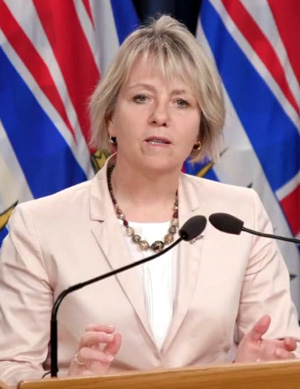
Everyone is sorting out what a ‘small bubble’ is in their own social world. It gets complicated for most of us, as there are many times and places and ways that we interact or intersect with others.
If COVID-19 has taught us nothing else, it’s that we are social creatures and how important it is for health and well being to maintain social connections.
Social adaptation for the long haul:
COVID is here for the long haul … at least another year or more until a vaccine or effective treatment for the viral infection is available, distributed, administered and taking hold in the population.
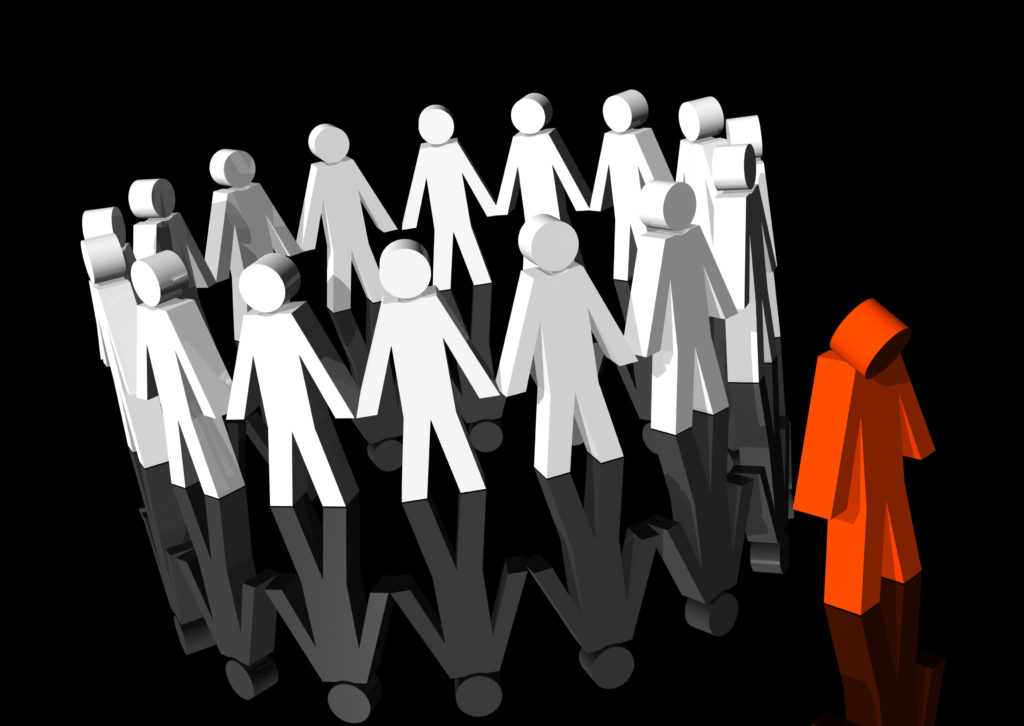
Mental and emotional health impacts were seen early on in the first-wave lockdown, and the impacts will reverberate.
The first lockdown produced a test for friendships. All of a sudden the broad range of relationships we maintain in our lives became suddenly tribal, even primitive… just family members who are under your own roof are your ‘real family’, your now frozen-in-time bubble.
It’s almost like a throwback to the 1950s when the nuclear family was the sole definition of family — something which society railed against for decades to produce social diversity.
Families with children (dependents or grown) and grandparents living in separate houses have been forced to make decisions about separation ‘for our own good’. But without healthy social connections and the flexibility to exercise them in a normal way, mental and emotional health — and the future of many relationships — is challenged or even crumbling.
Ranking people in your life:
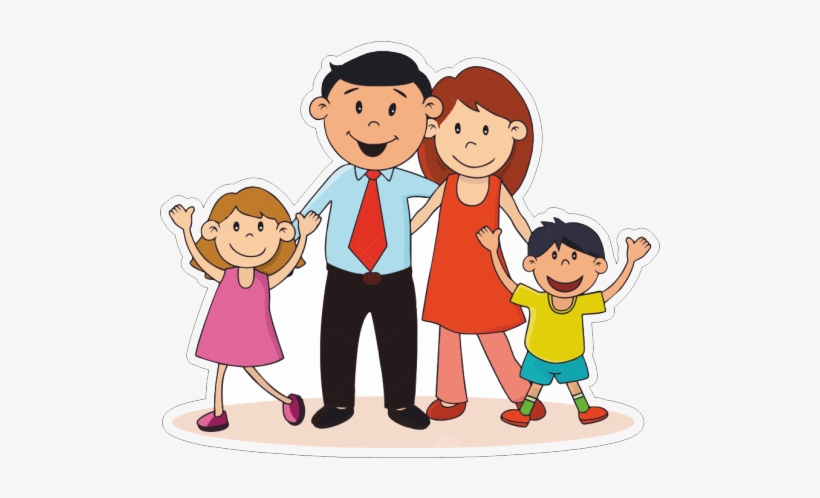
The social bubble exercise — as commanded by public health — is an exercise in ranking people. This is developing a level of trauma for many people, perhaps only starting to bubble to the surface in this first year of the COVID pandemic experience.
On the face of it, social bubbles seem like a perfectly rational idea and perhaps for many ‘normal’ or established households, they have become a guide to survival. People are, overall, thankful for that.
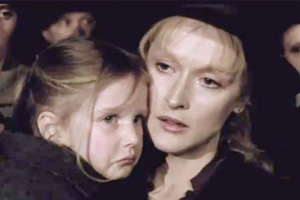
But for all the people shifted aside, cast aside, presumed to be already-bubbled, the mental-emotional crisis is growing. Quietly in most cases.
The ripple effect will be seen in socio-emotional anxiety and trauma over the months and years ahead as people find themselves within or rejected from their pre-COVID social hierarchies.
Some may remember the traumatic viewing of the 1982 movie Sophie’s Choice where a mother was forced by the Nazis to choose between her children. That movie has become part of the modern social lexicon, referring to an extremely difficult decision a person has to make (a situation where no outcome is preferable over the other).
If that movie made an impact on you, that feeling is like what some people are experiencing right now by having to choose — not just between people in the moment, but realizing the long-term impact of their choices.
Wedges and bonds:
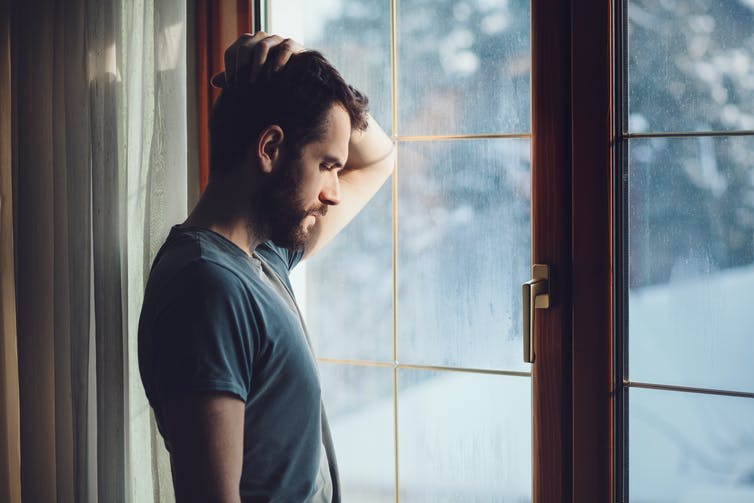
A study on social bubbles in New Zealand in May 2020 showed that social bubble isolation could drive a wedge between friends and relatives who had previously been close.
The group that seemed to benefit most from the isolation period were people who had previously been over-stressed in high-demand jobs and therefore found more time with family to be welcome and positive.
The research found that, on average, people in single-person households tended to have less positive experiences of lockdown than people living in multi-person households. This held true for all age brackets.
It might seem logical at first — given the virulence of COVID — but having the government define our social circles is starting to wear on people. It’s no surprise that some sectors of society (young, and disenfranchised, and arguably less-educated) are rebelling in the ways we have seen in recent months such as parties and gatherings and people intentionally not wearing masks.
Adapting your bubble for inclusion:
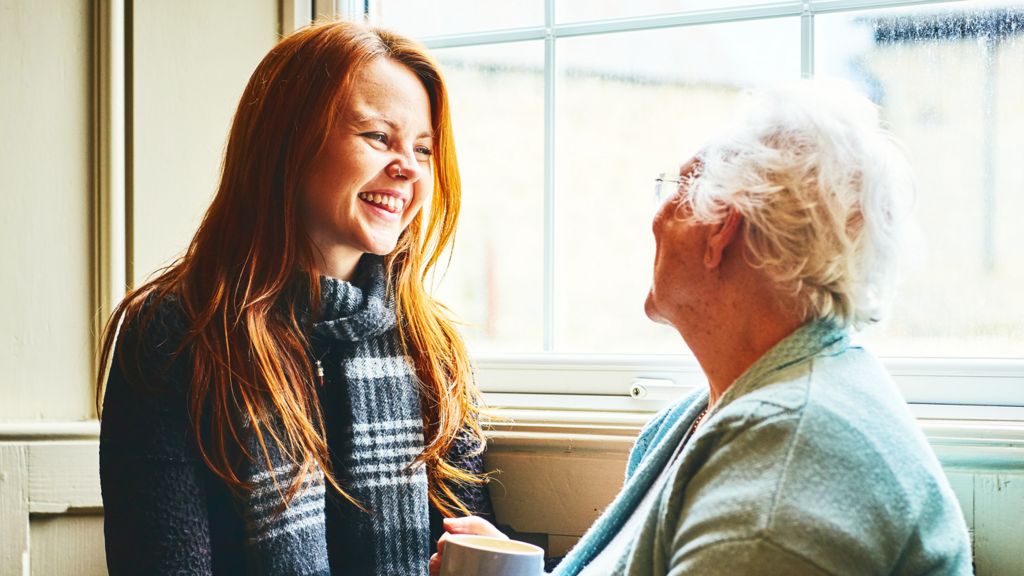
This hasn’t been suggested yet by BC public health, but in some other jurisdictions it is now being suggested that people who are alone not just be waved at across the street but formally welcomed into someone else’s bubble.
That would feel almost like adoption, bringing in a new family member with no-turning-back as to the commitment.
This is part of a compassionate coping strategy, something likely only a crisis like a pandemic could forge.
Public health has not given specific guidelines on this, but it would make sense that both parties (the welcoming group and the lone person) would probably want to agree to self-isolate and remain asymptomatic for 14 days before connecting. That is a considerable commitment for what might be considered a non-essential choice.
Safe celebrations:
Meanwhile, various holiday celebrations are coming up, including Thanksgiving, Halloween, Remembrance Day and Christmas.
Small household-only gatherings are presently recommended by Provincial Health Officer Dr Bonnie Henry for Thanksgiving dinners, and perhaps ‘remembering at home’ on November 11 this year.
Though last week Prime Minister Justin Trudeau said “we might have a shot at Christmas” (for larger gatherings) if Canadians can continue to keep COVID case numbers down by practicing physical distancing, good hand hygiene, wearing a face mask, and staying home if sick.




